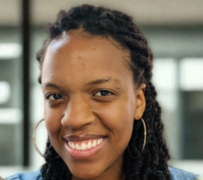Our Beliefs
- Every student has unique strengths and potential and deserves access to a high-quality, equitable education that nurtures academic, social, and emotional growth.
- Families, educators, and the community are essential partners in supporting student success, and strong collaboration helps close opportunity gaps.
- Equity and inclusion guide our work so that all students feel valued, respected, and empowered to reach their goals.
- Social-emotional learning and positive relationships are foundations for academic achievement and lifelong well-being.
- School counselors advocate for all students by providing a comprehensive program that is data-informed, proactive, and responsive to the needs of our diverse learners.
- Students are capable of becoming resilient, innovative problem-solvers who contribute positively to their community and the wider world.
Our Vision
The vision of the Drew Elementary School Counseling Program is that every student will graduate from Drew as a resilient, compassionate, and innovative problem-solver, prepared to embrace opportunities, overcome challenges, and contribute positively to a diverse and changing world.
Our Mission
The mission of the Drew Elementary School Counseling Program is to provide a comprehensive, developmentally appropriate program that empowers all students to achieve academic success, develop social-emotional skills, and explore career and future pathways. In collaboration with families, staff, and the community, the counseling program promotes equity, inclusion, and positive relationships so every student can thrive as a confident learner and responsible citizen.

Jemia Williamson | 3rd-5th Counselor | [email protected]| 703-228-5825

Christina Castromiller | K-2nd Counselor | [email protected]| 703-228-5825
Who Are School Counselors? School counselors help students grow and succeed at school and in their everyday lives. They work with students, teachers, families, and the school community to make sure everyone has support.
What Do School Counselors Do?
- Classroom Lessons: Counselors visit every classroom twice a month to teach lessons about friendship, feelings, kindness, problem-solving, and other social-emotional skills.
- Individual Counseling: Counselors meet with students one-on-one to explore feelings, work through challenges, and practice skills to handle school and social situations.
- Group Counseling: Counselors lead small groups where students practice skills for making friends, managing feelings, solving problems, and handling conflicts. Students learn strategies and support each other.
- Crisis Support: Counselors help students during emergencies or after upsetting events, offering guidance and support to feel better.
- Working with Teachers: Counselors work with teachers to support all students and help everyone do their best at school.
- Supporting Families: Counselors give families resources and guidance to help their child succeed at home and at school.
- Teamwork with School Leaders: Counselors work with principals and other school mental health staff to plan programs that meet students’ needs.
- Student Growth: Counselors help students set goals, explore interests, and build important social and emotional skills.
- Building Relationships: Counselors build trust with students and help them resolve conflicts with classmates, encouraging positive relationships.
School counselors are an important part of the school. They help students feel supported, build positive relationships, and succeed in school and with friends.
For more information, visit the Arlington School Counselor website.
 Contact
Contact  Calendars
Calendars Careers
Careers Engage
Engage  District
District
